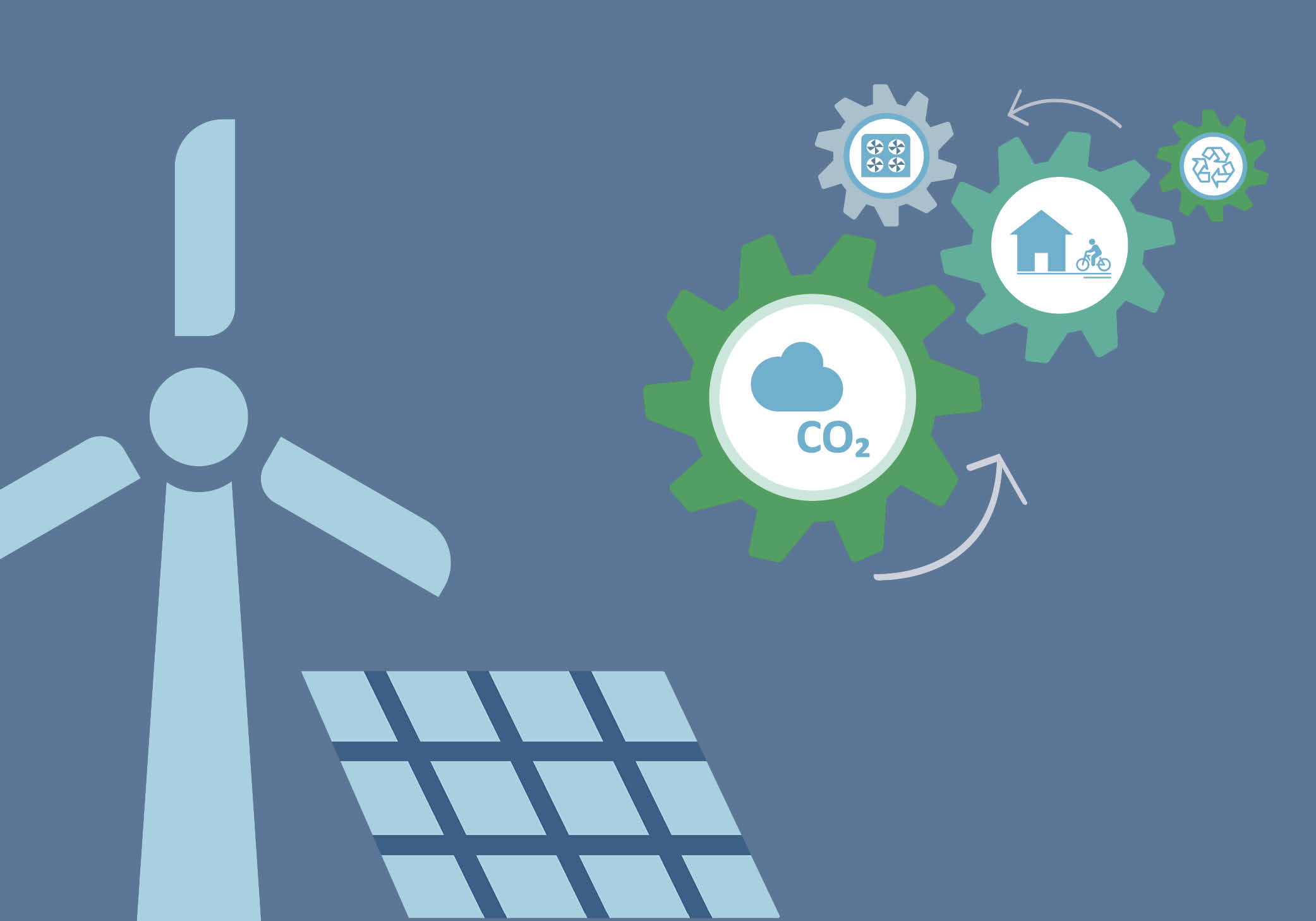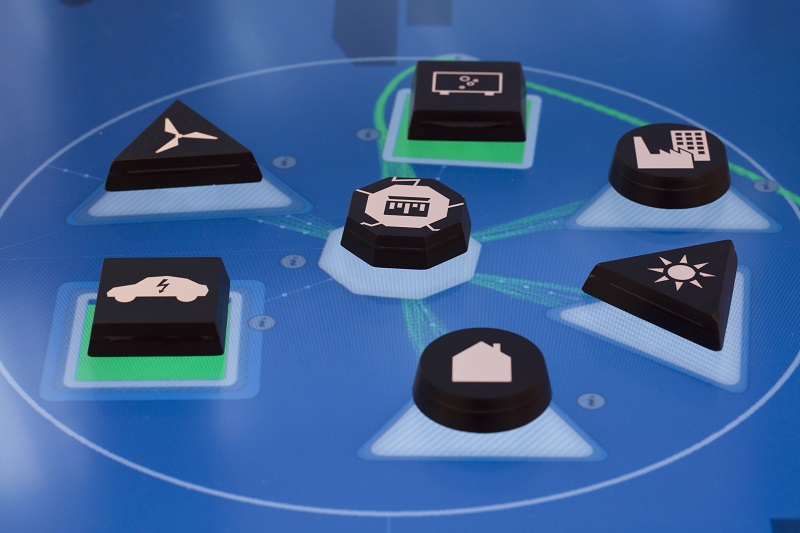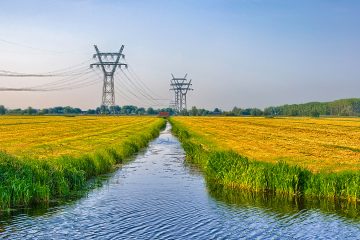Academies of sciences call for integrated climate strategy: conversion of technology, sufficiency and negative emissions

Berlin, 02 February 2023
Germany has 22 years to meet its target of net-zero GHG emissions. This requires swift, ambitious measures to convert the energy supply and decarbonise industry. The project undertaken by the academies “Energy Systems of the Future” looked at how this transformation could happen. This statement shows that climate neutrality can only be achieved with a combination of societal, technological and economic solutions. Reducing demand for energy also plays a key role here.
Experts from “Energy Systems of the Future” (ESYS) – a joint initiative of the academies of sciences acatech, Leopoldina and the Union of the German Academies of Sciences and Humanities – have identified in the statement “Wie wird Deutschland klimaneutral? Handlungsoptionen für Technologieumbau, Verbrauchsreduktion und Kohlenstoffmanagement“ (How can Germany achieve net-zero emissions?) 22 areas of action towards a climate-neutral Germany. The discussion was underpinned by extensive meta-analyses and internal model-based scenarios. It is apparent that the transformation of the energy system must be seen as and treated as a macrosocial process. The technological, economic and infrastructural conditions for this to happen must be put in place promptly.
Pressing ahead with conversion of the energy technology and making industry climate-neutral, creating incentives for sufficiency and efficiency, carbon capture and storage
It is the view of the working group that the expansion of renewables and technological change in the heating, transport and industry sectors are the cornerstones of this transformation. However, if today’s patterns of energy usage do not change, it will be very hard to meet climate targets by this means alone. Rather, energy consumption would also have to fall, and not just by increasing energy efficiency but by reducing the demand for energy services as well (sufficiency).
In the experts’ opinion, active political initiatives are needed for this to succeed. Anke Weidlich, co-head of the working group and Professor for Control and Integration of Grids at the Institut für Nachhaltige Technische Systeme (INATECH) at the University of Freiburg, noted, “We need good climate-friendly alternatives for housing and mobility in particular, to make the necessary reductions in energy services. These must become the norm everywhere and replace, bit by bit, the high-emissions solutions we have had to date. This will become all the more important not least if Germany intends to make a bigger contribution to reaching the Paris Climate Agreement goals. To do that, it will have to achieve net-zero even earlier, which is not possible without reducing the energy demand.”
As a complementary measure, processes and sectors where decarbonisation is difficult must be made climate-neutral, above all industry. To make industry climate-neutral, in the working group’s opinion a three-pronged approach is required: the implementation of climate-neutral processes based on green electricity and green hydrogen, boosting the circular economy and being economical with materials or using more-climate-friendly alternatives instead.
Even if these measures were to achieve the best-possible outcome, it will be necessary to offset inevitable emissions in industry and agriculture by permanently removing carbon from the atmosphere and thus achieving negative emissions. To facilitate this, society must reconsider carbon capture and storage (CCS). In addition, there should be regulatory support for the development of and building up the market in natural carbon removal methods and a comprehensive strategy for sustainable carbon management should be formulated.
The experts are certain that only in combination can societal, technological and economic solutions create a resilient path towards transformation, where potential missed targets in some areas can be made up for by successes in other areas. Mario Ragwitz, co-head of the working group and Director of the Fraunhofer Research Institution for Energy Infrastructures and Geothermal Systems IEG as well as Professor of Integrated Energy Infrastructures at Brandenburg University of Technology Cottbus-Senftenberg, made the point, “Making energy savings does not mean that we should take the foot off the gas with regard to the expansion of renewables and the conversion of energy infrastructures. Equally, talking about and developing carbon removal methods is essential, but it shouldn’t mean that we make less of an effort to avoid emissions. Putting all our eggs in the one basket will not get us to our goal.”



